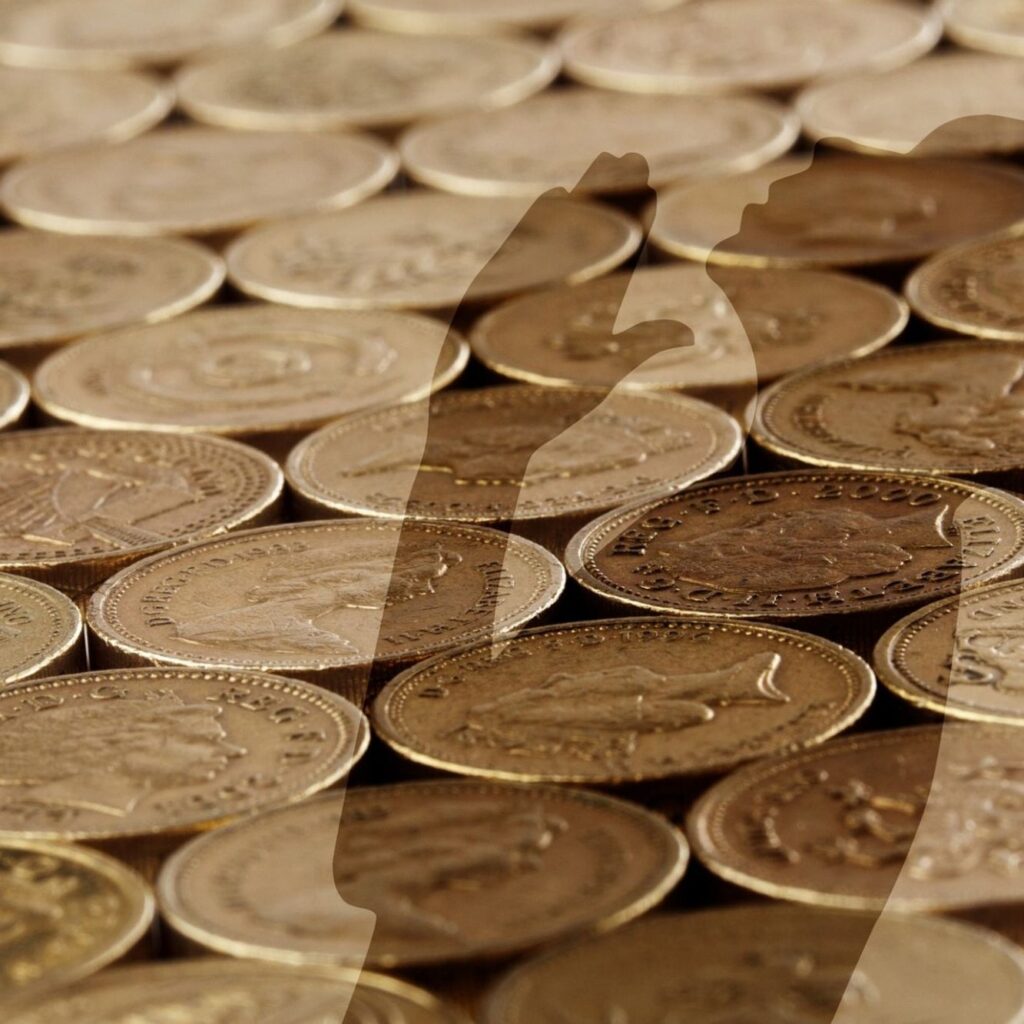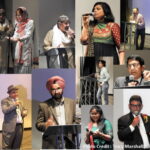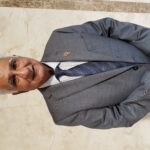By Zile Singh
Need is something required for a safe, stable, and healthy life. Food, clothes, and shelter are the basic needs of all human beings. Without these, human survival is painful. Therefore, basic needs should be the most fundamental rights of everyone. From the beginning of human evolution, man has prioritized his needs in the above-mentioned order. In history, many men have reached the pinnacle of heights in different walks of life only when at least their basic needs were fulfilled. Necessity is one of the synonyms of need. About the need or necessity, it is said, “Necessity is the mother of invention.” Also, “Necessity breaks iron.” The expanded and unbridled needs become greed. The needs are finite, whereas desires and greed are infinite. A Chinese proverb states, “Man’s heart is never satisfied; the snake would swallow the elephant.” Greed leads to a devilish nature because it is hard for a greedy eye to have a Leal heart. (Leal means honest).
In regard to needs and greed, Mahatma Gandhi, an apostle of non-violence and a down-to-earth, practical man, said, “The Earth provides enough to satisfy every man’s needs, but not every man’s greed.” In his personal life, he set an example by wearing as few clothes as possible and eating as little food as necessary. Mind it; he never advocated, “Go as bare as you dare.” Most of the time, he practiced restraints even in speech. He had a routine of fasting also. The fact is that acquiring material things beyond need is nothing less than creating a junkyard in your house. Greediness, in any respect, is harmful. About food, “Many dishes, many diseases, many medicines, few cures.” – Benjamin Franklin. And “Greedy eaters dig their graves with their teeth.” – French proverb. Informally, ‘need something like a hole in the head- is used to emphasize that someone has absolutely no need or desire for something.

Present-day consumerism has expanded beyond the limits of our needs. The sales and marketing managers are in galore. The aim of selling is to satisfy a customer’s needs, and the aim of marketing is to figure out his greed. Successful marketing has all its focus on how the greed of the customers can be exploited through all sorts of advertisements and periodic sales. A game of numbers is displayed in the form of 50, 70, or even 80 percent discount or “buy one, get one free” to attract customers. Year-round sales have attracted the masses to such an extent that they buy things which, most of the time, in fact, are not required at all. They buy it because it is cheaper in sale.
Now let us think as to how much ‘stuff’ we need in our homes. Some objects are for common use and placed at a particular place in the house. Other stuff we acquire is for the personal use of every house member. Although all of these things we own are lifeless objects, we become attached to them. Can you think of throwing away that obsolete piece of furniture, a faded shirt, a worn-out pair of shoes, even some old greeting cards, or that teddy bear you still keep on your bed, just because you have had it since your childhood? Somehow, the answer is a bold ‘No.’ On the contrary, we go on adding to our limited space more things without disposing of the old and unused stuff. Gradually, the living space is reduced, and it becomes difficult to move around in the house comfortably. “A clean space equals a clean mind.” So, before buying any item, make a place for it by disposing of an old one. ‘The iron not used soon rusts.’ – Romanian proverb. Before you go to a sale, keep your eyes open: a sale is a sale. “A buyer needs a hundred eyes, the seller but one.” – George Herbert.

According to a rough estimate by the United Nations, the world’s 20% rich consume 77% of the resources; the 60% middle class consumes 21%, and the 20% poor consume just 2%. Actually, 98% of consumption by the rich and middle class is not consumption as per their needs but can be termed insatiable greed and flagrant wastage. These consumption patterns show that it is not to meet everyone’s needs, but it is an indicator of inequality between the rich and the poor.
This consumption pattern has put a great strain on the environment also. In different religions, frugality is one of the virtues. “Better shake out the sack than start a full bag.” – It means that if you have an object, do not buy a new one. Also, “Spend not where you may save; spare not where you must spend.” Buy, when there is a need. Finally, RRR “Reduce, Reuse and Recycle” is a very useful formula from financial and environmental angles. The question is, what we, as individuals, and as a society can do to lessen the burden on the earth through our small day-to-day actions? Let us do our small bit to make the world a cleaner and healthier place by focusing on our basic needs and restricting our unlimited greed. It would be a significant step toward saving the environment.
“You don’t need a silver fork to eat good food.” – Paul Prudhomme
Food, clothing, and shelter are our basic need.
Man, a sophisticated animal, has much greed.
Zile Singh is a well respected Columnist, Writer and a Vipassana Meditater. He has a Post-Graduate Diploma in Human Rights. He can be reached at zsnirwal@yahoo.ca

















6 Comments
Emt badge
3 months agoI completely agree with your points. Well said!
iWild Casino Auszahlung Probleme
2 months agoDas Riviera wird eröffnet, das erste Hochhaus auf dem Strip.The Dunes wird
eröffnet und besteht bis 1993, als es implodiert und durch das Bellagio ersetzt
wird. Das Hacienda wird eröffnet (und bleibt bis 1996 bestehen, als es
implodiert, um Platz für das Mandalay Bay zu machen).
Das Tropicana wird eröffnet.Das Sans Souci Hotel (kein Casino) wird
an der Stelle eröffnet, an der später das Mirage entstehen sollte.
Das Stardust wird eröffnet, mit dem größten Casino und Swimmingpool in Nevada und dem größten Hotel in Las
Vegas.
Schließlich bietet die Plattform auch mobilen Support,
sodass Sie auch unterwegs mit Ihrem Tablet oder Smartphone
spielen können. Zu den Videopokerspielen gehören Multi-Hand Poker, Spin Poker, All-Star Poker,
Multi-Strike Poker und viele andere beliebte Titel.
Das Casino bietet ein luxuriöses Spielerlebnis mit einer Vielzahl an Tischspielen und Spielautomaten. Informieren Sie sich über unsere aktuellen Angebote und nutzen Sie die
Gelegenheit, mehr zu spielen und zu gewinnen.
Unsere Plattform bietet Ihnen aktuelle Quoten und
eine Vielzahl von Wettoptionen – von klassischen Einzelwetten bis hin zu Kombi- und Systemwetten. Setzen Sie auf die beliebtesten Ligen und Turniere weltweit oder entdecken Sie Nischen-Sportarten mit
attraktiven Quoten. Vulkan Vegas bietet verschiedene Baccarat-Versionen,
die sowohl für Anfänger als auch für erfahrene Spieler geeignet sind.
Ob Sie ein erfahrener Spieler oder ein Neuling
sind, unsere Blackjack-Tische bieten ein spannendes Erlebnis mit der Chance auf
große Gewinne. Mit einer Reihe von Themen, hohen Auszahlungsraten und spannenden Bonusfunktionen bieten unsere
Slots Unterhaltung für jeden Geschmack. Mit einer umfangreichen Palette an Casino
Online Spielen bieten wir jedem Spieler, egal ob Anfänger oder
Profi, ein unvergessliches Erlebnis.
References:
https://online-spielhallen.de/monro-casino-aktionscodes-ihr-schlussel-zu-mehr-spielspas/
online gambling
2 months agoYour personal information will be disclosed to Crown Resorts Limited and may be disclosed to our
other related bodies corporate and third party service providers.
Crown does not operate an online casino or provide online gambling in any
form. In Australia, it is illegal to operate an online
casino or to provide casino-style games online. Download our digital card with ease straight to
your digital wallet, or for those extra special occasions explore our
range of gifting options, including packaged gift cards that can be sent via mail in perfectly
wrapped boxes Crown Gifts cards are available in denominations from $100 to $500.
One (1) bottle of Champagne will be delivered to your room during your stay.
Pre-payment required at time of reservation and no cancellation permitted.
Valet parking for one (1) vehicle only for duration of stay and is subject to availability.
The ideal offering for those seeking a truly luxurious
stay.
Asino casino bonus code
2 months agoToday a lot of gamblers substitute the focus from offline casinos where they waste valuable time and funds to the
online casino pages which make it possible
for clients to game best casino in Australia whilst sitting at home.
If you’ve already given it a try, we’ve got nine more secure gambling sites for Aussie players ready.
We’re happy to share that Neospin has passed all our safety tests with flying colours and is now our favourite site to play casino games
Down Under. All of these secure casinos offer pokies from licensed providers, such as Betsoft, BGaming, Wazdan, Yggdrasil, and many others.
We’re aware that bonuses are often the make-or-break point for players when they decide where they want to play.
Deposit bonuses are the most lucrative rewards you can claim at an AU casino.
Welcome, and sign-up bonuses are rewards you get for registering at a
casino. This game uses two dice, and players have to bet on the outcome of the dice when they are thrown.
Plus, you also have the choice to play progressive jackpots to win a lot of real money.
The casino’s terms and conditions are a commitment to players,
forming a contractual agreement between them and the
casino. The green bar indicates that the casino site is secure for Aussie players.
With over 6,300 games from leading studios such as Pragmatic Play and BGaming,
it easily keeps up with the best-in-class. Spinando
is the latest addition to the best new Australian casinos, launched in 2025.
You’ll even find games that you didn’t necessarily expect to find, like
Top Card, Cash Crab, or The Kickoff. It boasts a massive 600+ game library of live dealer tables and game shows.
References:
https://blackcoin.co/meth-meth-casino-game-apk-download-real-money-play/
vads.in
2 months agobest online casino usa paypal
References:
vads.in
jobs.maanas.in
2 months agoonline australian casino paypal
References:
jobs.maanas.in